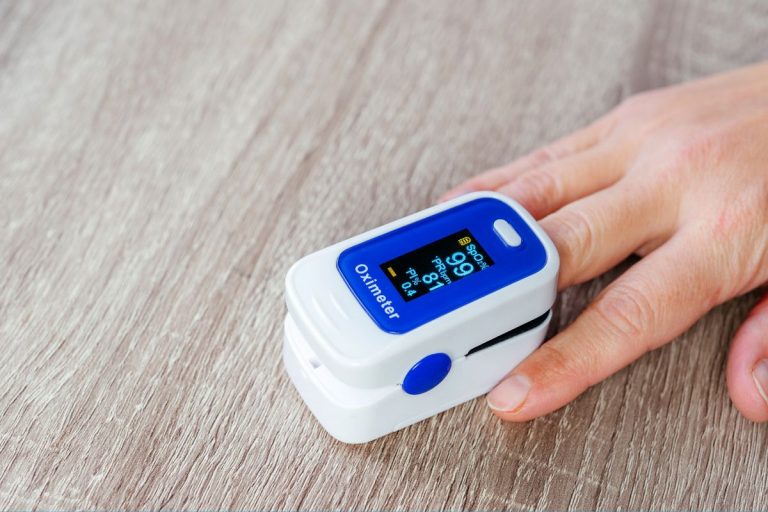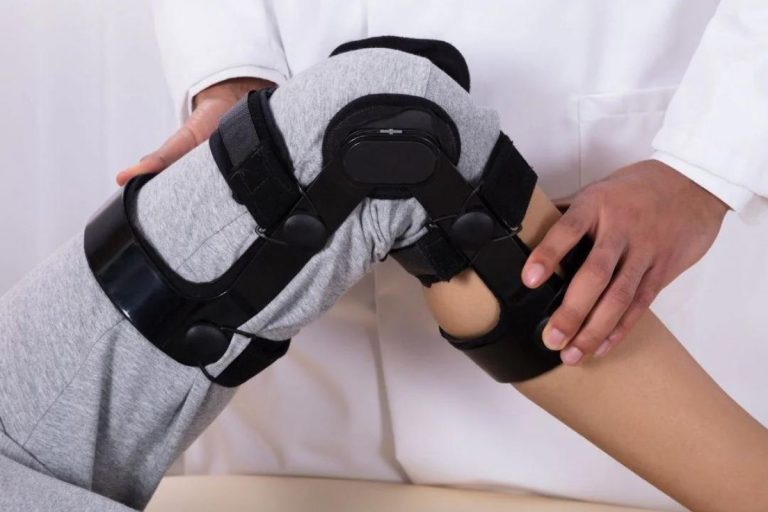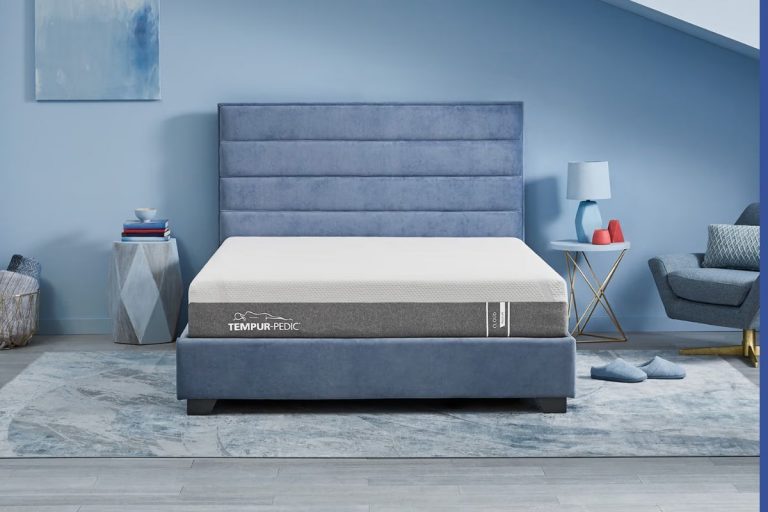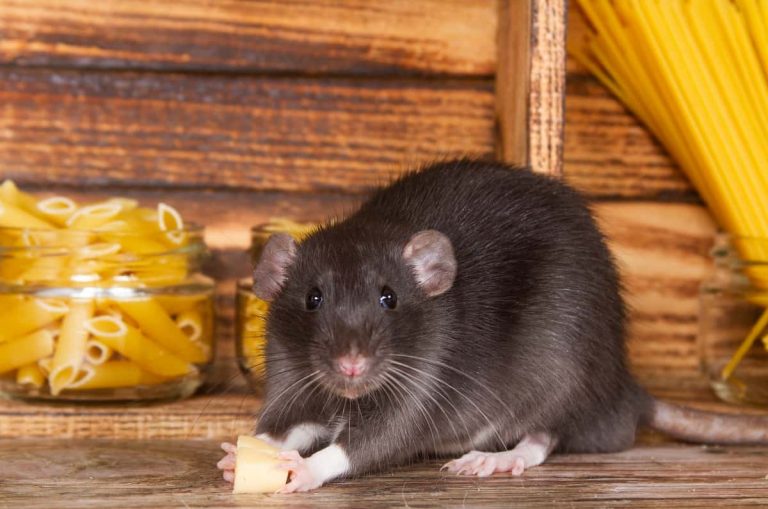The reason your heart rate spikes while you are sleeping is usually the same reason it would while awake—with a few notable exceptions. Knowing the reasons your heart rate might spike is essential, as is seeking help if it keeps happening, or you suffer a severe bout of it.
Why Does My Heart Rate Spike When I’m Asleep: 14 Reasons
1. Stress Hormones
Stress hormones can cause your blood pressure and heart rate to spike. If you feel anxious, depressed, or stressed, your hormones can make your heart go racing. As a result, you may wake up in the middle of the night with your heart galloping in your chest.
According to American Family Physician, the most common non-heart related cause for heart palpitations is stress or anxiety of some form.
Warning: Stress hormones aren’t only a problem where your heart rate is concerned—high levels of cortisol have also been linked to a number of different diseases. If you are feeling stressed, or depressed, be sure to eat well, exercise, meditate, spend time doing things that relax you, spend time in the great outdoors (which has proven to lower stress) and get help from a coach or psychologist if you experience depression.
2. Shock and Fear
Just like anxiety and stress can cause your heart rate to go up, so can shock or fear. You’ve probably heard that someone frightened can feel their heart thumping in their chest! Whether the fear or shock, is caused by something in the moment or caused by a nightmare or sudden flashback, your heart rate might spike.
Therefore, if you’re prone to nightmares, you might very well wake up with your heart racing.
Tip: Nightmares can be caused by underlying stress, fear, or trauma. If you keep experiencing them, it might be a sign you’re trying to process old trauma, or can’t process old trauma. You might even suffer post-traumatic stress disorder.
Whatever the reason, if you keep having nightmares, seeing a therapist, or psychologist, can help you unravel what’s gotten stuck in your subconscious. Everyone deserves to live a life free of fear.
Also Read: What to Do After a Nightmare: Know The Root Causes
3. Alcohol
Alcohol increases your heart rate. Therefore, if you have too much, your heart can start racing. If you are an alcoholic or binge drinker, this may increase the chances of this happening.
4. A Sugar Rush
If you consumed a lot of sugar before going to sleep—including refined carbs, such as white bread—you might experience a sugar rush. The sugar rush happens when the insulin in your body turns the sugar into energy.
While you need carbs for energy, too much of a good thing is stressful for the body, which means that it reacts by producing stress hormones. And, as already mentioned, these can cause an increase in your heart rate.
5. Diabetes
As touched on previously, high blood sugar can cause a rapid heartbeat. High blood sugar is also one of the side effects of untreated diabetes, which makes sense as you can no longer break down sugar properly if you have diabetes. However, it’s also important to note that low blood sugar can cause your heart rate to speed up as well! If you have not eaten for a long time, your blood sugar might drop. Having too low levels of blood sugar can also, in the long run, cause diabetes.
In short, sugar spikes, low blood sugar (also known as hypoglycemia), and diabetes can all cause your heart rate to spike.
6. A Lack of Oxygen
If your blood oxygen levels drop, your heart rate goes up to compensate. A drop in blood oxygen can be caused by sleep apnea, as it obstructs your airways, which means you might stop breathing for short intervals.
If you do not suffer from sleep apnea, look into other causes for low blood oxygen levels during sleep.
Tip: Sleep apnea is caused by some of the muscles in your throat area relaxing too much. This can often be prevented by ensuring you maintain a healthy weight, practice breathing exercises, sing (no kidding), and exercise (cardio). You will also want to ensure you don’t get over tired and thus relax too much when finally falling asleep, or drink alcohol that also relaxes your muscles. Certain medications may also relax your muscles.
As the same thing may cause snoring, doing the above may very well prevent you from snoring too!
7. Atrial Fibrillation (AFib)
AFib is caused by your hearts upper and lower chambers beating out of sync with one another. This can cause the heart rate to speed up.
8. Stimulants
If consuming too much, stimulants, such as caffeine, can cause your heart to race. Some medicines also contain stimulants—be sure to check with your pharmacist or doctor if you are taking any.
Warning: Some energy drinks contain a lot of caffeine—more than a cup of coffee would. Caffeine, apart from potentially leaving you jittery and anxious, can also cause you to become dehydrated. You need to drink drinks that do not contain caffeine to stay hydrated, which leads us to our next point: dehydration.
9. Dehydration
Not consuming enough fluids, having an underlying medical condition, or taking medication causing dehydration can lead to an increased heart rate.
Be sure to stay hydrated by drinking water, cold-pressed juice, or herbal teas in-between meals.
Tip: To stay hydrated, you need not only water, but also electrolytes. Therefore, the best way to stay hydrated is to drink vegetable and fruit juices, soups, coconut water, and drinking water together with a meal that provides electrolytes.
10. Medication
Various medicines can cause heart palpitations as a side effect. Be sure to read the label and contact your doctor if you have any issues.
Further Information: According to American Physician, “Medications used to treat attention-deficit/hyperactivity disorder and rescue inhalers for asthma may cause palpitations. Over-the-counter nasal decongestants, herbal preparations, and supplements such as omega-3 polyunsaturated fatty acids, coenzyme Q10, and carnitine may also cause palpitations.”
11. Sleep Deprivation
Just like sleep deprivation can cause sleep apnea as your throat muscles relax too much when finally falling asleep, sleep deprivation can cause a rapid heart rate.
12. Anemia
Anemia is another cause of rapid heart rate.
Tip: The most common cause of anemia is iron deficiency, so be sure to get enough in your diet, or supplement with a multi-vitamin a couple of times a week.
13. Hormone Fluctuations
When women get pregnant, have their period, or hit menopause, various hormones can spike and drop. This, in turn, can cause a rapid heartbeat.
14. Overheating
If you get too hot, your heart rate will go up. Therefore, if you are sleeping in a hot place or have a fever, your heart can start racing.
Fun to Know: Your heart helps control your body heat by pumping blood around to the blood vessels close to your skin. The blood vessels contract or open up depending on whether your body needs to warm up or cool down.
If you need to get warm, the blood vessels open up so that your blood can get cooled by the air that touches your skin. They contract when you need to stay warm. Therefore, body temperature is linked to heart functioning.
Heart Rate Spike: Frequently Asked Questions
When Should I See a Doctor?
If you are dizzy and experience chest pain together with a racing heart, you need to get to a hospital right away as it can be signs of a heart attack.
If you wake up from a racing heart that is not due to a nightmare or night terror, and it happens often, you need to see a doctor. Likewise, if your heart keeps racing for longer than a few seconds, even if it just happens once or twice, you need to see a doctor.
If other symptoms accompany your increased heart rate, you should see a doctor as there may be an underlying medical cause. Also, if you have a history of heart problems, you need to see a doctor as soon as possible.
What Can I Do to Lower My Heart Rate?
Apart from leading a happy and healthy lifestyle in general, where you sleep enough, eat well and exercise, you can do the following if experiencing bouts of increased heart rate at night:
- breathe in slowly through your nose and exhale slowly through your mouth—keep going for a couple of minutes to calm yourself down
- splash cold water on your face, or have a cold shower to help “reset” your heart (it activates the vagus nerve, which connects your brain to your heart)
- try the Valsalva maneuver by closing your mouth and pinching your nose, then trying to breathe out—it’s the same you’d do in an airplane when trying to reduce the pressure on your ear drums—it can cause a brief elevation in blood pressure that might be enough to reset your heart
- cough—this can also stimulate the vagus verve
- make sure the room you’re in isn’t too hot





